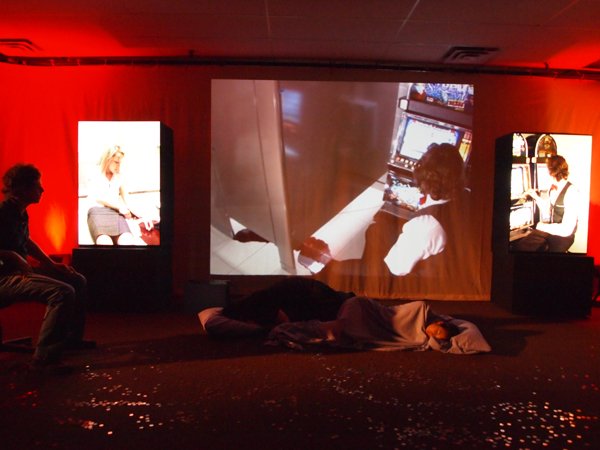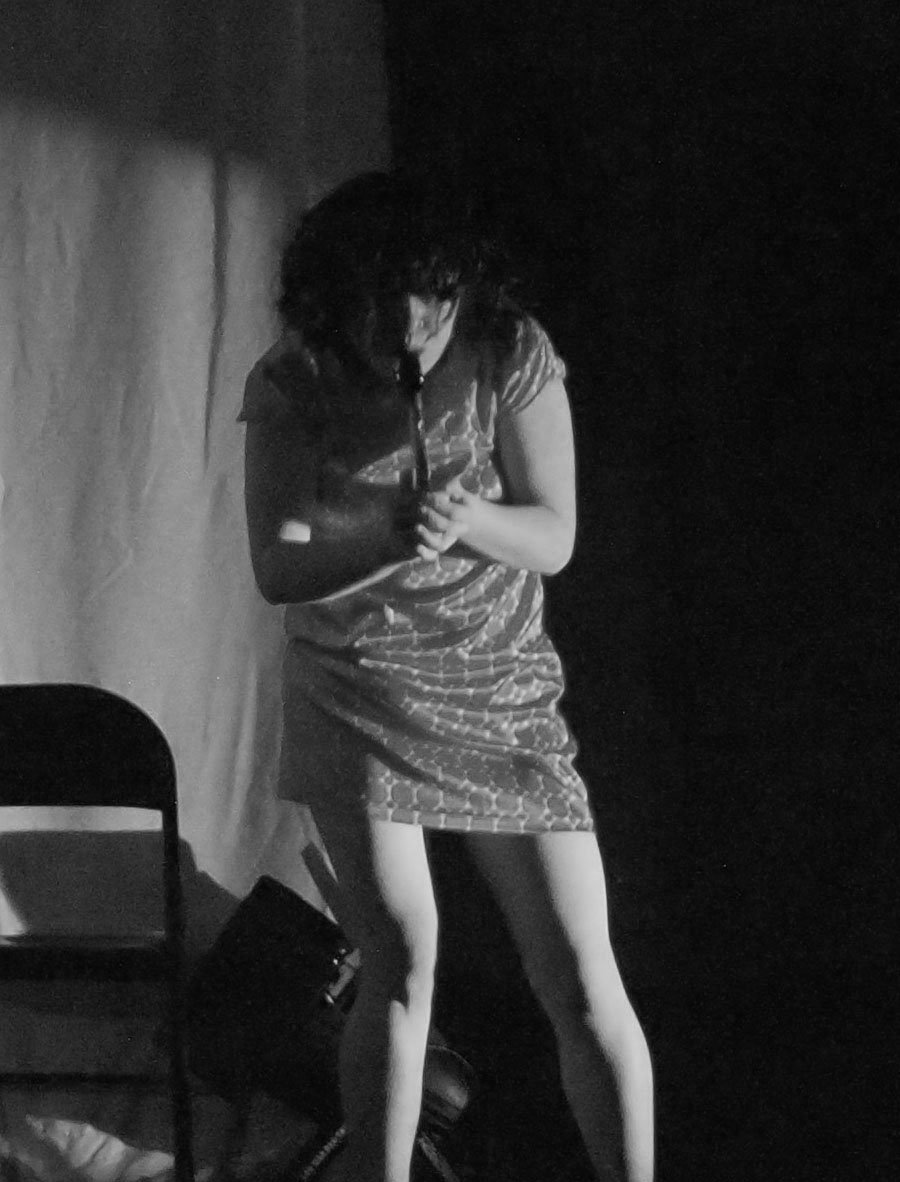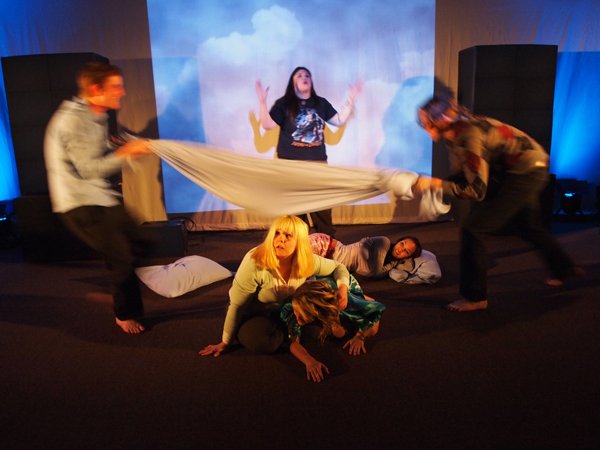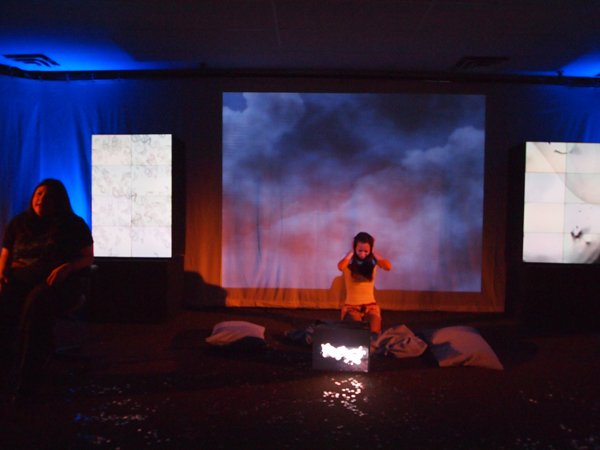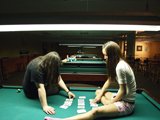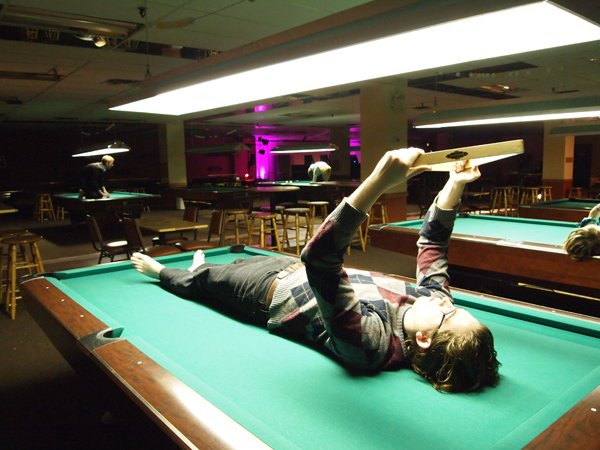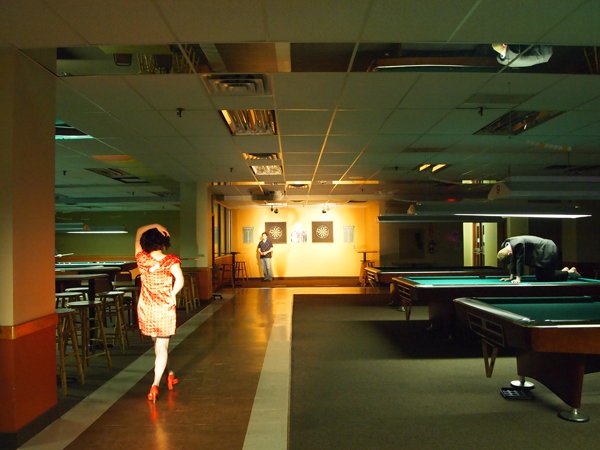DISSOCIA
Theatre people are often superstitious. While a lot of planning and expertise goes into the preparation of a performance, our work is also based on a good deal of trust in the process, where the outcome may well be left to chance. Perhaps it is theatre’s roots in religious ritual that keeps some element of the metaphysical alive in our process. But more likely it’s because theatre is ultimately an experience of relating through words, space, and the body – a language that’s as much about hopes, fears and desires as it is about carefully prepared statements and staging. There is a lot left to chance in any performance, so perhaps it is this relationship with luck and a faith in the unknown, that could be considered a core connection between the performance of a gambler and of an actor. But there is also more to this comparison of performances.
Research for Dissocia began in a 2009 dramaturgy class at the University of Waterloo, where we explored questions about how addiction can be viewed as a singular process, whether the symptom is gambling, shopping, drugs, alcohol, work, or any other compulsive activity. In the development of this performance, and through the insights of playwright Adam Cowart, I began to see the importance of the language of addiction.
ABOUT THE PROJECT
“What is addiction, really? It is a sign, a signal, a symptom of distress. It is a language that tells us about a plight that must be understood.”
It seems to me that addicts embellish their addiction with a mythology of their behaviour, which is reinforced and lived through ritual. In the case of digital slot machines, the mythology is a peculiar return to childhood, as evidenced by the imagery, the fantasy and cartoon-like themes of the machines. On one level, those who become addicted to digital slot machines seem to be yearning to play, but the pursuit of the game comes with a gamble. This is because the stakes are so high, but also because the trappings of the ritual – the technology and casino environments as spaces of escape – have nothing to do with play and everything to do with control and exploitation. While the gambler tells him- or herself a story about escaping reality to be in a world of play, the ritual is actually one of exploiting the gambler’s desires to recover the feelings of well-being and happiness, lost since childhood.
The performance you are taking part in today began in a ‘black box’ purpose-built theatre space at the University of Waterloo. Now at Open Ears, with the help of Cheryl Ewing and the generous support of Don Zehr, we have been lucky enough to re-mount our work in this former billiard hall. This new site has helped to shape the experience of our work; it is both a place of play and a place of loss, our performance is at home in this dynamic between winning and losing, hope and regret.


